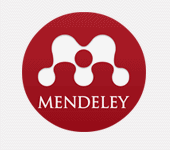THE UTILIZATION OF THE COMMENT FEATURE ON INSTAGRAM ACCOUNTS IN ADVOCATING FOR LAW ENFORCEMENT IN THE CITY OF TEBING TINGGI (A STUDY ON THE INSTAGRAM ACCOUNT @TEBINGTINGGIKU)
Abstract
Keywords
Full Text:
PDFReferences
Abdillah, L. A. (2022). Peranan Media Sosial Modern. Palembang: Bening Media Publishing.
Dewi, N. P. A. L. (2022). Pengaruh media sosial terhadap minat berkunjung wisatawan ke daya tarik wisata Sukawana Sunrise. Jurnal Ilmiah Pariwisata dan Bisnis, 1(2), 276-285. https://doi.org/10.22334/paris.v1i2.18
Dalimunthe, MA., Syam, AM., Suhendar, A., & Ritonga, AR. (2024). Optimizing Local Regulations in Creating a Balance of Human Health and Environmental Preservation. KOLABORASI: Journal of Multidisciplinary 1 (1), 1-12.
Dalimunthe, MA., Syam, AM., Suhendar, A., & Al-Mujtahid, NM. (2024). Deconstructing Islamic Cyberculture: Mitigating Inferiority and Cancel Culture in Virtual Space. OPINI: Journal of Communication and Social Science 1 (2), 12-26
Diningrum, W. (2020). Media sosial Instagram sebagai media komunikasi sosial (Studi pada mahasiswa Pendidikan IPS angkatan 2019 UIN Malang).
Fujiawati, F. S., & Raharja, R. M. (2021). Pemanfaatan media sosial (Instagram) sebagai media penyajian kreasi seni. Jurnal Ilmiah, 6(1), 32-44.
Hariyanto, A., & Putera, A. (2022). Konten kreator YouTube sebagai sumber penghasilan (Telaah kritis hukum ekonomi syari'ah). Jurnal Hukum Ekonomi Syari'ah, 3(2), 301-309.
Juliana, R. (2021). Pemanfaatan media sosial Instagram oleh Komisi Penyiaran Indonesia Daerah Jawa Barat sebagai media komunikasi dan informasi terkait pengawasan.
Kraus, S., Jones, P., Kailer, N., Weinmann, A., Chaparro-Banegas, N., & Roig-Tierno, N. (2021). Digital transformation: An overview of the current state of the art of research. SAGE Open, 11(3). https://doi.org/10.1177/21582440211047576
Lidara, A. W. (2022). Efektivitas penggunaan media sosial Instagram @infopku_ sebagai media informasi online Kota Pekanbaru. [Skripsi, UIN Suska Riau].
Maharani, V. E., & Djuwita, A. (2020). Pemanfaatan media sosial Instagram sebagai media komunikasi dan informasi Pemerintah Kota Semarang. Jurnal E-Proceeding of Management.
Nurdiansyah, F., & Rugoyah, H. S. (2021). Strategi branding Bandung Giri Gahana Golf sebelum dan saat pandemi Covid-19.
Qorib, A., & Saragih, M. Y. (2019). Capability of print media and electronic media in analyzing news. Budapest International Research and Critics Institute (BIRCI-Journal): Humanities and Social Sciences, 2(1), 238-247. https://doi.org/10.33258/birci.v2i1.174
Rohmadi, A. (2018). Tips Produktif Ber-Social Media. Jakarta: Elex Media Komputindo.
Saragih, M. Y. (2021). Law, journalistic profession and mass media ethics. Budapest International Research and Critics Institute (BIRCI-Journal): Humanities and Social Sciences, 4(2), 2532-2540. https://doi.org/10.33258/birci.v4i2.1957
Tong, T. K. P. B., & Subagio, H. (2020). Analisa pengaruh social media marketing terhadap repurchase intention melalui brand trust sebagai variabel mediasi pada Instagram Adidas Indonesia di Surabaya. Jurnal Strategi Pemasaran, 7(1), 10.
Zahwa Sabilla, A. (2022). Pemanfaatan media sosial Instagram terhadap eksistensi PT Jasa Raharja Perwakilan Metro.
DOI: http://dx.doi.org/10.30829/jai.v14i2.25591
Refbacks
- There are currently no refbacks.
Copyright (c) 2025 Nyak Mutia Barokah Johan

This work is licensed under a Creative Commons Attribution-ShareAlike 4.0 International License.





